It's now clear that Xi Jinping's team has settled on a strategy somewhere in between. And for the global economy, the signals from this week's meeting of the Politburo, the Communist Party's top decision-making body, seem short-term negative for world markets – but long-term positive .
As Bill Bishop, long-time China-watcher and author of the Sinocism newsletter, sees it, the policy direction being telegraphed seems“fairly dovish,” but“doesn't seem to signal much more significant stimulus incoming near-term.”
That's bad news for bulls betting on a new Chinese stimulus bonanza that lifts markets from New York to Tokyo. Under the surface, though, there are myriad hints that the arrival of Premier Li Qiang in March is putting reforms on the front-burner once again. In other words, Beijing cares more about avoiding boom/bust cycles going forward than just mindlessly fueling a 2023 boom.
As“no fiscal expansion plans have been revealed so far, the impact will only be felt very progressively,” says economist
Carlos
Casanova
at Union Bancaire Privée.
Instead of aggressive plans for massive monetary easing and fiscal pump priming - as markets had assumed - the chatter is about prudent policymaking with an emphasis on lower taxes and fees and incentivizing
increased investment .
Rather than sharp drops in the yuan to boost exports, Li's reform squad is focused on catalyzing greater scientific and technological innovation and giving the private sector more space to thrive and create new good-paying jobs.
In lieu of scores of top-down decrees or public jobs-creation schemes, the zeitgeist is that developing a thriving micro, small and medium-sized enterprises (MSME) sector is a more forceful way to address record youth unemployment than large-scale stimulus.
What Xi and Li are telegraphing might be best called the“anti-Mario Draghi” approach to enlivening Asia's biggest economy.
Latest stories
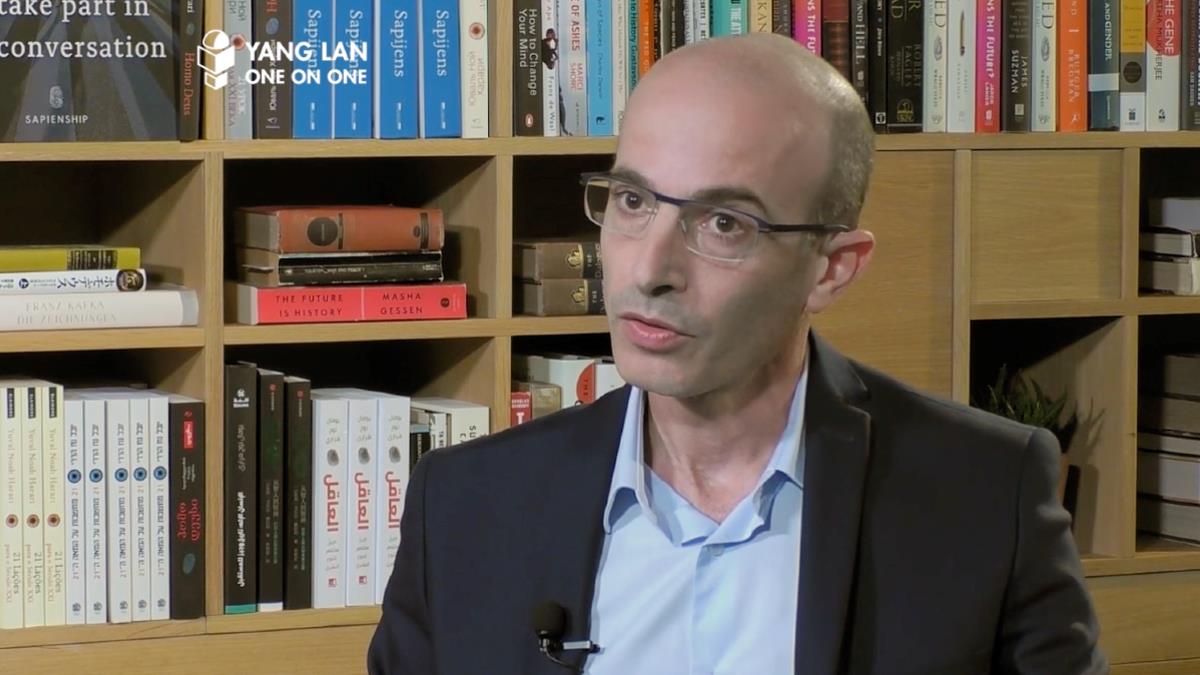
yang lan interviews academics on ai development

why isis doesn't always publicize its attacks

will hun manet reset ties with the west?
The reference here is to the former European Central Bank president's infamous pledge“to do whatever it takes” to stabilize the financial system via powerful monetary easing.
A year later, Draghi's liquidity onslaught inspired then Bank of Japan Governor Haruhiko Kuroda to follow suit.
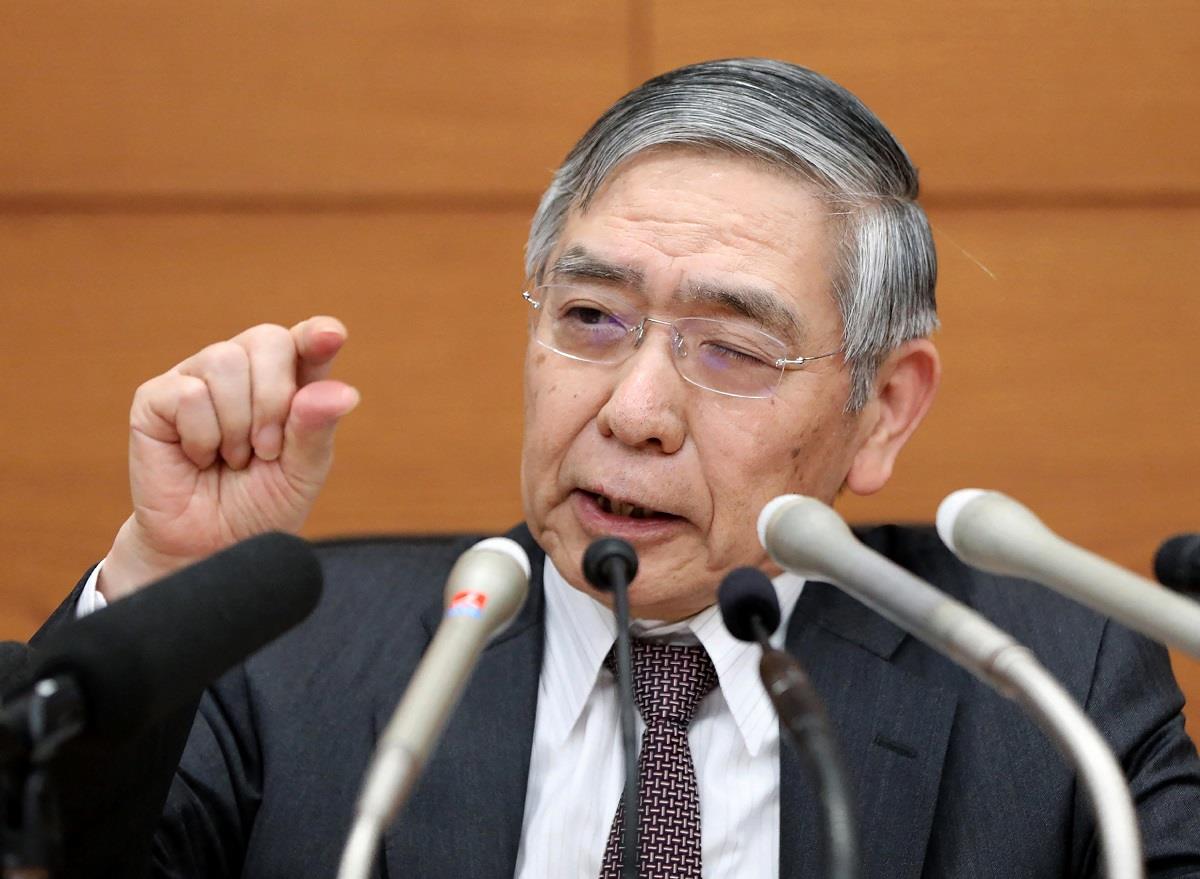
Haruhiko Kuroda. Photo> Asia Times Files / JIJI Press
On Draghi's watch, the ECB unleashed stimulus on a level that would've been unfathomable to Bundesbank officials of old. In Tokyo, between 2013 and 2018, the Kuroda BOJ's balance sheet swelled to the point where it topped the size of Japan's $5 trillion economy.
Neither monetary boom did much, if anything, to make the broader European or Japanese economies more competitive, productive or, broadly speaking, more prosperous. Instead, executive monetary support generated a bubble in complacency.
Draghinomics - and Kurodanomics - took the onus off government officials from Madrid to Seoul to loosen labor markets, reduce bureaucracy, incentivize innovation, tighten corporate governance or invest big in strengthening human capital.
China, it seems, is determined to go the other way. In the months since Xi started his third term - and Li arrived on the scene as his number two - Beijing has confounded the conventional wisdom on chinese stimulus .
The start of this week's Politburo is no exception. Markets were betting on major stimulus moves. Instead, China unveiled a 17-point plan to attract more private capital its way.
In a note to clients, analysts at Capital Economics said that“the absence of any major announcements of policy specifics does suggest a lack of urgency or that policymakers are struggling to come up with suitable measures to shore up growth.”
One possible interpretation was that Xi's inner circle wants to put some actions on the scoreboard before next month's annual huddle in the resort of Beidaihe to discuss long-term policy direction. Yet the tenor of steps seems more about supply-side reforms than fiscal and monetary pump-priming that might squander progress in reducing financial leverage.
Instead of talking about reaching this year's 5% growth target, the government said the priority now is that“good foundation is laid for achieving the annual economic and social development targets.” Officials admitted, too, that“economic recovery will show a wavy pattern and there will be bumps during progress.”
In other words, the instant
gross domestic product
gratification that investors came to expect in Xi's first two terms has been replaced with a more pragmatic approach. While there will be“prudent monetary policy” and at times an“active fiscal policy,” the bigger objective is to“extend, optimize, improve and enforce tax cuts and fee reductions.”
Stimulus will indeed emerge when, and where, needed. The Politburo said, for example, that it would“accelerate the issuance and use of local government special bonds.”
This means it's entirely possible that
local governments may be allowed to“dig into” remaining special bond quotas, including from previous years, says economist Yu Xiangrong at Citigroup, who estimates the quota to be about 1.1 trillion yuan (US$154 billion).
But there was far more discussion of ways to“adapt to the major change in supply-demand relations in the property market,” and, in timely fashion, to“adjust and optimize real estate policies.” That, beijing says, means steps to“increase construction and supply of low-income housing,” and“revitalize all types of idling properties.”
To economist Zhiwei Zhang at Pinpoint Asset Management,“this is an interesting signal as the property sector downturn is arguably the key challenge the economy faces now.” As such,“it seems the government has recognised the importance of policy change in this sector to stabilize the economy.”
Just as important, arguably, is the government saying it's committed to“effectively prevent and resolve local debt risks, make a package of plans to resolve the debt.” The same goes for commitments to“concretely optimize private firms' development environment” and“build and improve the routinized communication mechanism with companies.”
Furthermore, the party's latest phraseology includes pledges to“firmly crack down on excess fee and fine charging, resolve the receivables governments owe to companies” and“accelerate the fostering and growing of strategic emerging industries.” The plan, the party notes, is to“strengthen financial regulation, steadily push for the reform and risk resolution at small and medium-sized financial institutions of high risks” as a means to“stabilize the basic market of
.”
Such language is more the stuff of Adam Smith and Milton Friedman than Mao Zedong. More Hans Tietmeyer of Bundesbank fame than Draghi or Kuroda. One possible area of optimism is that Xi's government is finally serious about fixing the underlying troubles in the property sector – not just treating the symptoms.
Casanova points to the Politburo's statement that
authorities would recalibrate property policies based on the“local property market situation” and consider developments related to“demand and supply imbalances.” To him,“that last point is new, suggesting a change in the macroprudential regime, as the government now sees a structural shift, requiring bottom-up measures to better reflect local conditions.”
That's not to say Xi and Li won't support demand where needed.
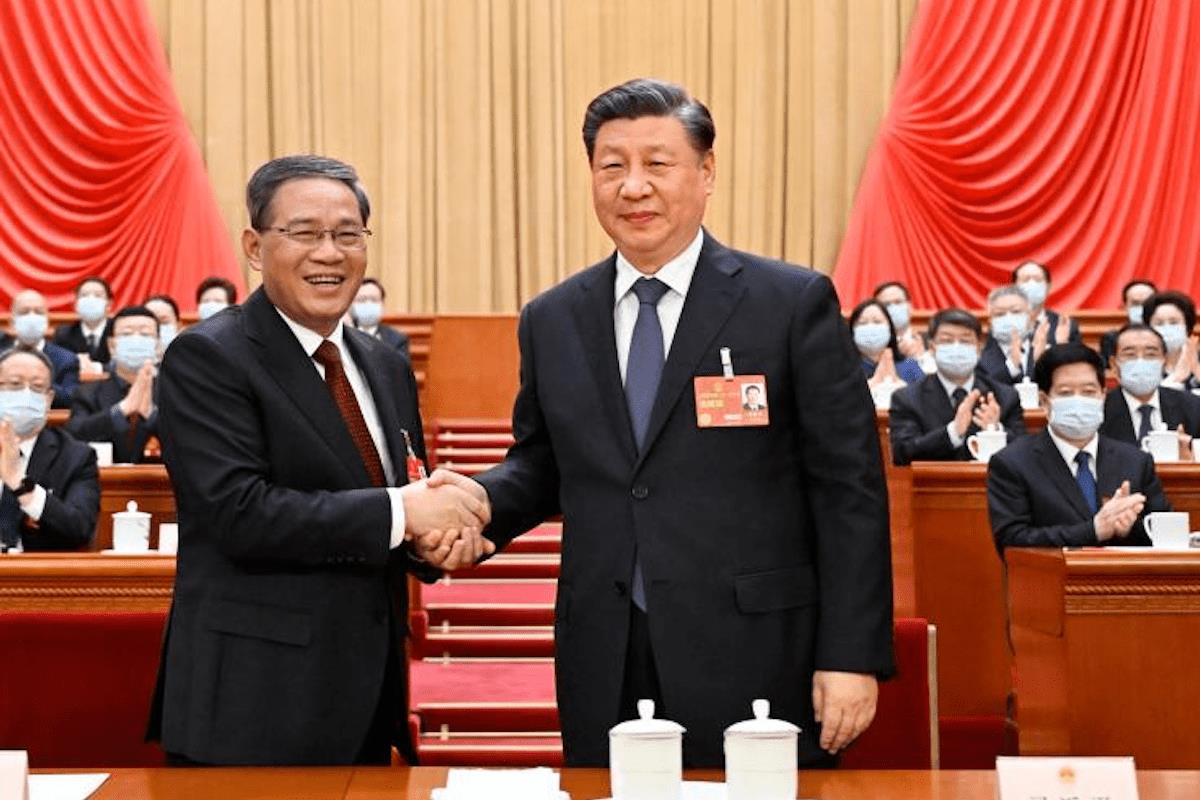
Chinese Premier Li Qiang and President Xi Jinping in March 2023. Photo: Xinhua
“We expect the government to roll out modest fiscal support in the second half of 2023, but no aggressive fiscal stimulus,” says economist
Ning Zhang at UBS AG. Even so, Zhang says,“some policy room may be kept to support economic growth in 2024.”
Additional stimulus measures that Zhang expects Beijing to prioritize: an acceleration of
special local government bond sales; a
resumption of policy banks' special infrastructure investment funds; Beijing providing credit to clear up local governments' arrears to corporate suppliers; modest property policy easing and
credit support
for stalled property projects; a modest credit growth rebound; and perhaps a small official rate cut.
There also could
be“some small-scale and targeted support” for selected consumption categories as well, Zhang says.
Mostly, though, the signals coming from Beijing this week suggest a greater emphasis in increasing confidence via reform and more vibrant safety nets than runaway stimulus.
Bottom line, China's Draghi days seem over – and that's a good thing.
Like this:Like Loading... Related



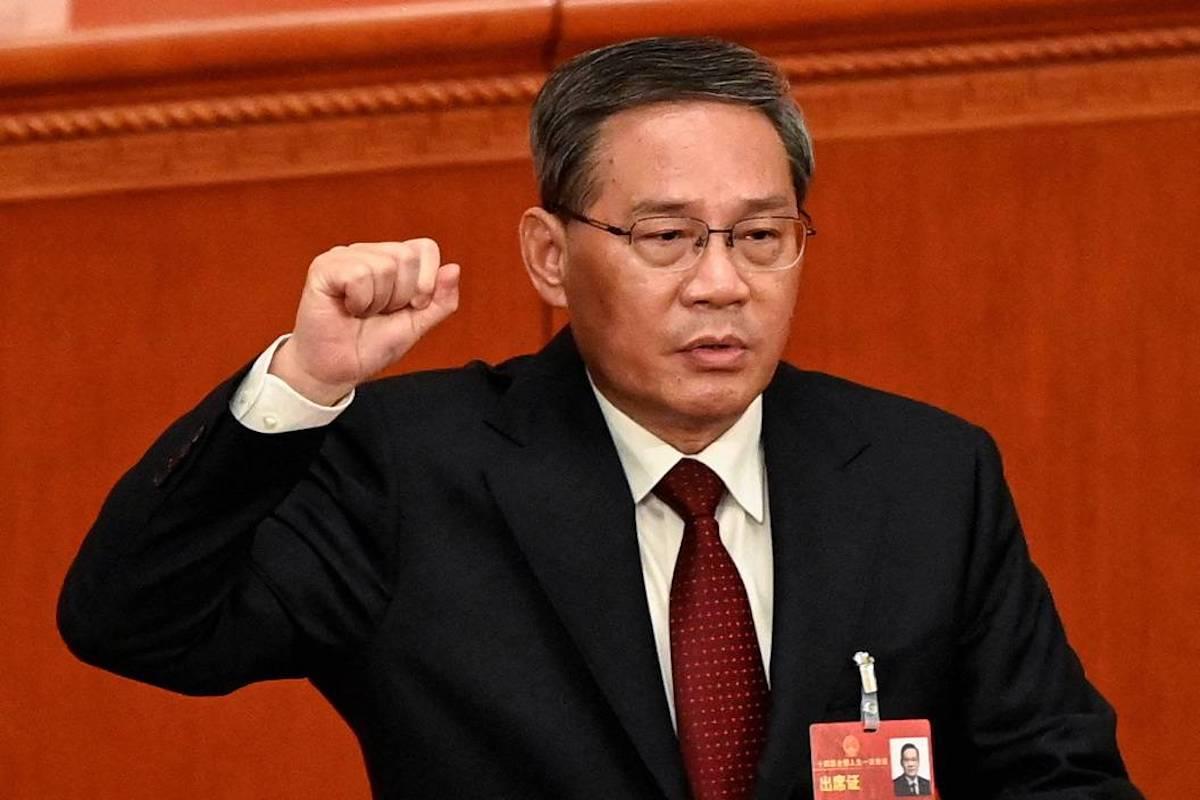
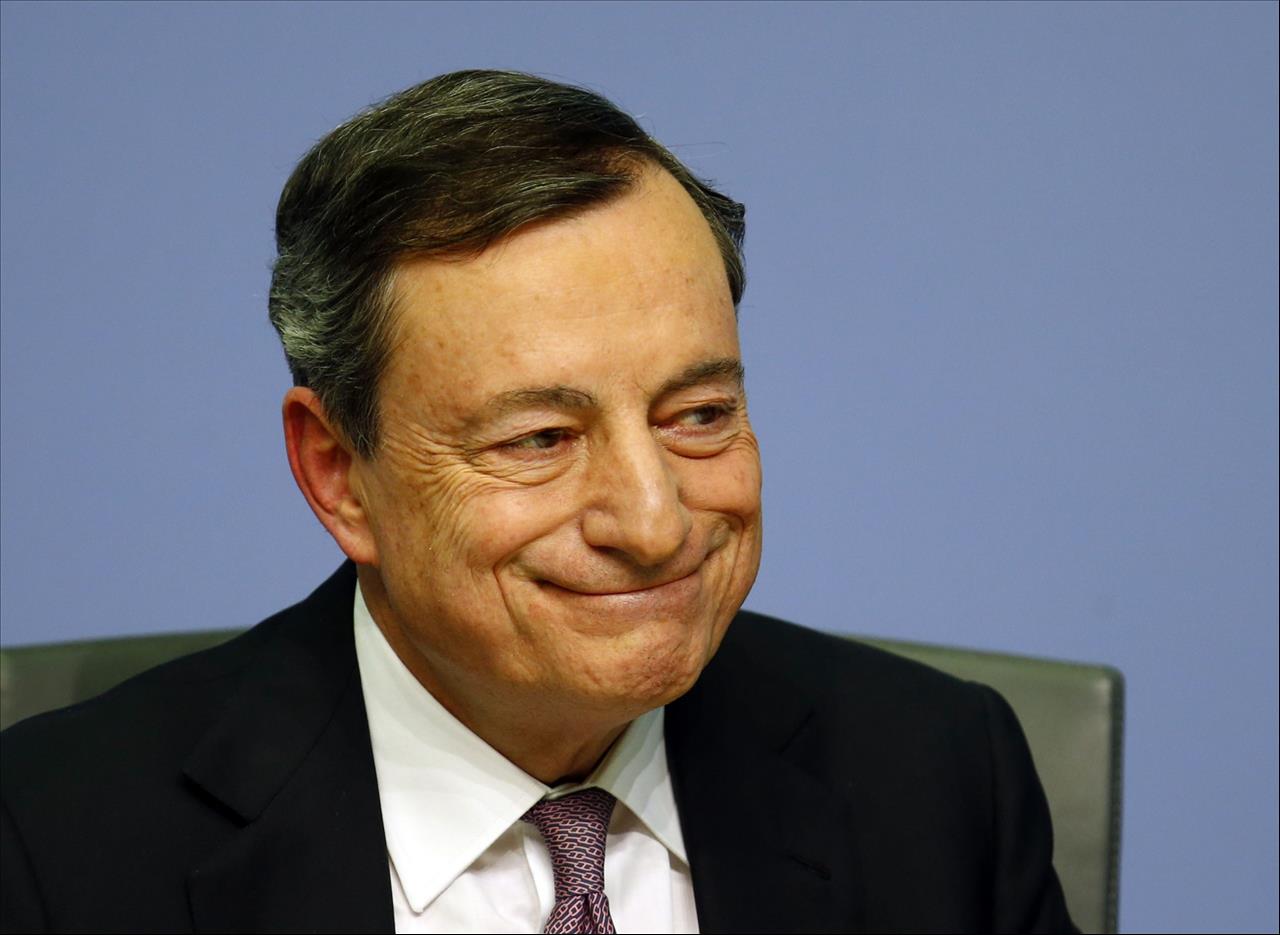





















Comments
No comment